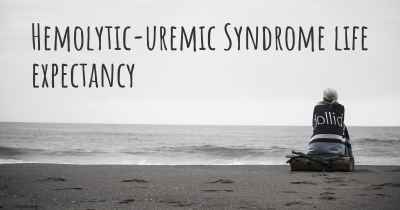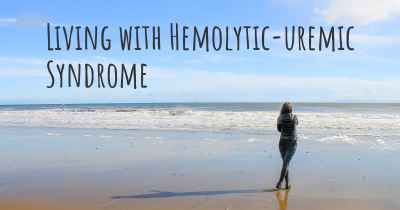Is Hemolytic-uremic Syndrome hereditary?
Here you can see if Hemolytic-uremic Syndrome can be hereditary. Do you have any genetic components? Does any member of your family have Hemolytic-uremic Syndrome or may be more predisposed to developing the condition?

Hemolytic-uremic Syndrome (HUS) is not typically considered a hereditary condition. It is most commonly caused by infection with certain strains of bacteria, such as E. coli. HUS can also be triggered by other factors like certain medications or genetic mutations. While there may be rare cases where a genetic predisposition plays a role, the majority of HUS cases are not inherited. It is important to consult with a healthcare professional for a comprehensive evaluation and understanding of individual cases.
Hemolytic-uremic syndrome (HUS) is a rare but serious condition that primarily affects the kidneys and blood. It is characterized by the destruction of red blood cells, low platelet count, and acute kidney failure. HUS is most commonly caused by infection with certain strains of bacteria, particularly Escherichia coli (E. coli) that produce toxins known as Shiga toxins. However, there are also non-infectious causes of HUS, such as certain medications, autoimmune disorders, and genetic mutations.
When it comes to the hereditary aspect of HUS, it is important to differentiate between the different causes. The majority of cases of HUS are not hereditary and occur sporadically, meaning they are not passed down from parents to their children. These cases are typically triggered by an infection, most commonly a gastrointestinal infection caused by Shiga toxin-producing E. coli. In these cases, the infection leads to the release of Shiga toxins, which can damage the lining of blood vessels and cause the characteristic symptoms of HUS.
However, there is a rare hereditary form of HUS known as atypical hemolytic-uremic syndrome (aHUS). Unlike the more common sporadic cases, aHUS is caused by genetic mutations that affect the regulation of the complement system, which is part of the body's immune system. The complement system helps to defend against infections and remove damaged cells, but in aHUS, it becomes overactive and attacks healthy cells, leading to the symptoms of HUS.
These genetic mutations can be inherited in an autosomal dominant or autosomal recessive manner. Autosomal dominant inheritance means that an affected individual has a 50% chance of passing the mutation on to each of their children. Autosomal recessive inheritance requires both parents to carry a copy of the mutation, and each child has a 25% chance of inheriting two copies of the mutation and developing aHUS.
It is important to note that aHUS is extremely rare, accounting for only a small percentage of all HUS cases. Most individuals with HUS do not have a hereditary form of the condition and will not pass it on to their children.
Diagnosing the hereditary form of HUS can be challenging as it requires genetic testing to identify the specific mutations involved. Genetic counseling and testing may be recommended for individuals with a family history of aHUS or those who have experienced recurrent episodes of HUS.
Treatment for hereditary HUS, particularly aHUS, often involves managing the symptoms and preventing complications. This may include supportive care such as dialysis to support kidney function, blood transfusions to replace damaged red blood cells, and medications to suppress the immune system and reduce inflammation. In some cases, targeted therapies that specifically inhibit the complement system may be used.
In conclusion, while the majority of cases of HUS are not hereditary and are triggered by infections, there is a rare hereditary form known as aHUS. aHUS is caused by genetic mutations that affect the complement system and can be inherited in an autosomal dominant or autosomal recessive manner. However, it is important to note that aHUS is extremely rare and most cases of HUS are not hereditary.
Posted Jan 29, 2018 by JaneDoeMT 3550








